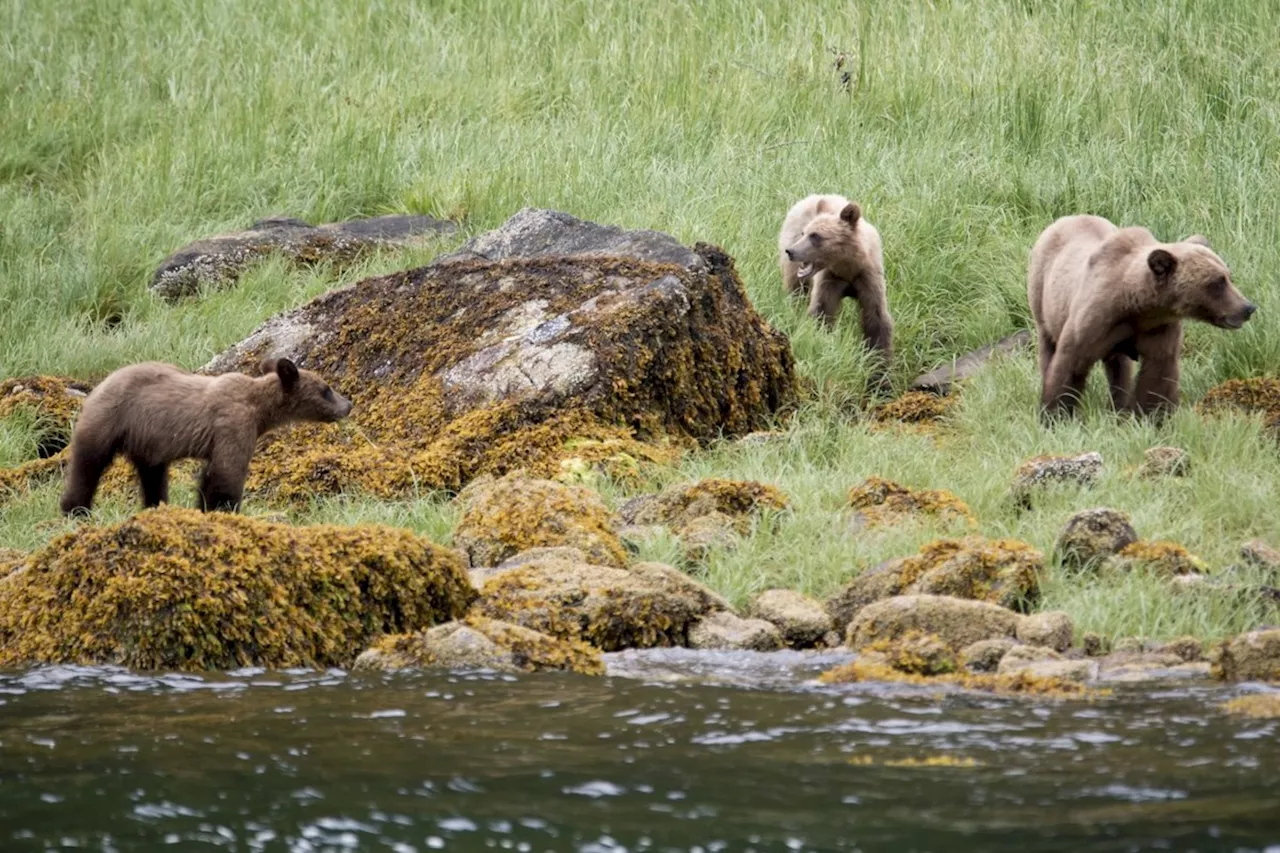A new study reveals that grizzly bears visiting ecotourism areas in British Columbia are less likely to engage in conflicts with humans compared to other bears. Researchers attribute this to responsible ecotourism practices that do not predispose bears to human-wildlife conflicts.
A new study by researchers based in British Columbia has found that grizzly bears that visited ecotourism areas along a river on the province's central coast were less likely than others to encounter conflict with people in communities downstream. Jason Moody, with the Nuxalk Nation's fisheries and wildlife program, said the research shows ecotourism done right is not a driving factor in conflict between bears and humans.
'The findings were pretty clear that if you're viewing bears in the right way … (it) does not predispose them to bear-human conflicts later on,' said Moody, who contributed to the study and runs an ecotour operation based in Bella Coola. Stories, songs and dances passed down through generations show the Nuxalk and other First Nations along B.C.'s coast have long coexisted with bears, he said. 'It goes back centuries if not thousands of years, relationship with the bears, and we really identify with them in this part of the Great Bear Rainforest.' But Moody said human activity, particularly in combination with poor salmon runs, has increasingly pushed grizzly bears into conflict with people. The study published Tuesday in the Canadian Journal of Zoology emerged from the question of whether bears that visited ecotourism areas might be accustomed to people and predisposed to conflict, lead author Kate Field said in an interview. Some studies have linked tourist-related behavioural changes in wildlife, such as tolerance to humans, with increased 'boldness,' she said. But Field said the B.C.-based study reached a different conclusion in the context of ecotourism in the Bella Coola Valley. It found grizzlies that visited ecotourism areas along the Atnarko River, which feeds into the Bella Coola River, were less likely than other bears to encounter conflict with people in communities about 40 to 60 kilometres downstream, near the coast. The study used hair sampling to identify 118 grizzlies along the river, with Field describing its banks as 'DNA libraries' for cataloguing bear movement. 'Each strand of fur is a breadcrumb on a bear trail,' said Field, a doctoral candidate at the University of Victoria. The researchers gathered samples during late summer and fall salmon runs from 2019 to 2021 and identified 34 bears that visited the ecotourism area at least once. They compared the samples against 'conflict samples' from captured or euthanized bears collected by the B.C. Conservation Officer Service and found just one of those bears went on to have conflict with people in the Bella Coola Valley. The other 29 bears that came into conflict with people were not detected at hair sampling sites in ecotourism areas along the Atnarko River, the study found. 'So this pattern suggests that ecotour bears are not commonly encountering conflict, at least in this specific context,' Field said. The raw data alone suggested that a match was rare. But it didn't consider the possible explanation that the population of grizzlies that did not visit the ecotourism area was much larger than the population of bears that did. Field said the researchers used a probability approach to ask how large the population of 'non-ecotour' bears in the area would have to be in order to observe the same level and probability of conflict by chance. They found the non-ecotour bear population would have to be 674 — close to double the highest possible population estimate, the study says. The bears detected at ecotourism sites were therefore less likely than predicted by chance to encounter conflict with humans downstream, the paper concluded. The study points to 'other human-caused drivers of conflict' between people and bears, such as fruit trees and salmon-cleaning stations that attract hungry grizzlies. Moody said the Nuxalk Nation works to reduce conflict through measures such as installing electric fencing around salmon-processing sites during harvest season. But the overall availability of salmon in a given year is also a major factor contributing to conflict between bears and humans, and Moody said that's one of many motivations behind the nation's work to restore and protect salmon runs. Grizzlies go after garbage, compost and other food associated with humans when there's not enough food available to them in the wild, Moody said. 'What we've been seeing is a trend, which (is) when you have good pink (salmon) runs, the conflict in the communities in this valley, throughout private properties as well, go down, just completely, almost completely disappear,' he said. 'The bears have no reason to take any risks and cross people's yards or highways, the fish have filled up all the small creeks and the tributaries, and the bears are able to stay in some of the forest cover that's still left for them without taking any risks.' Field also pointed to an earlier B.C
Ecotourism Grizzly Bears Conflict Wildlife British Columbia Salmon
Canada Latest News, Canada Headlines
Similar News:You can also read news stories similar to this one that we have collected from other news sources.
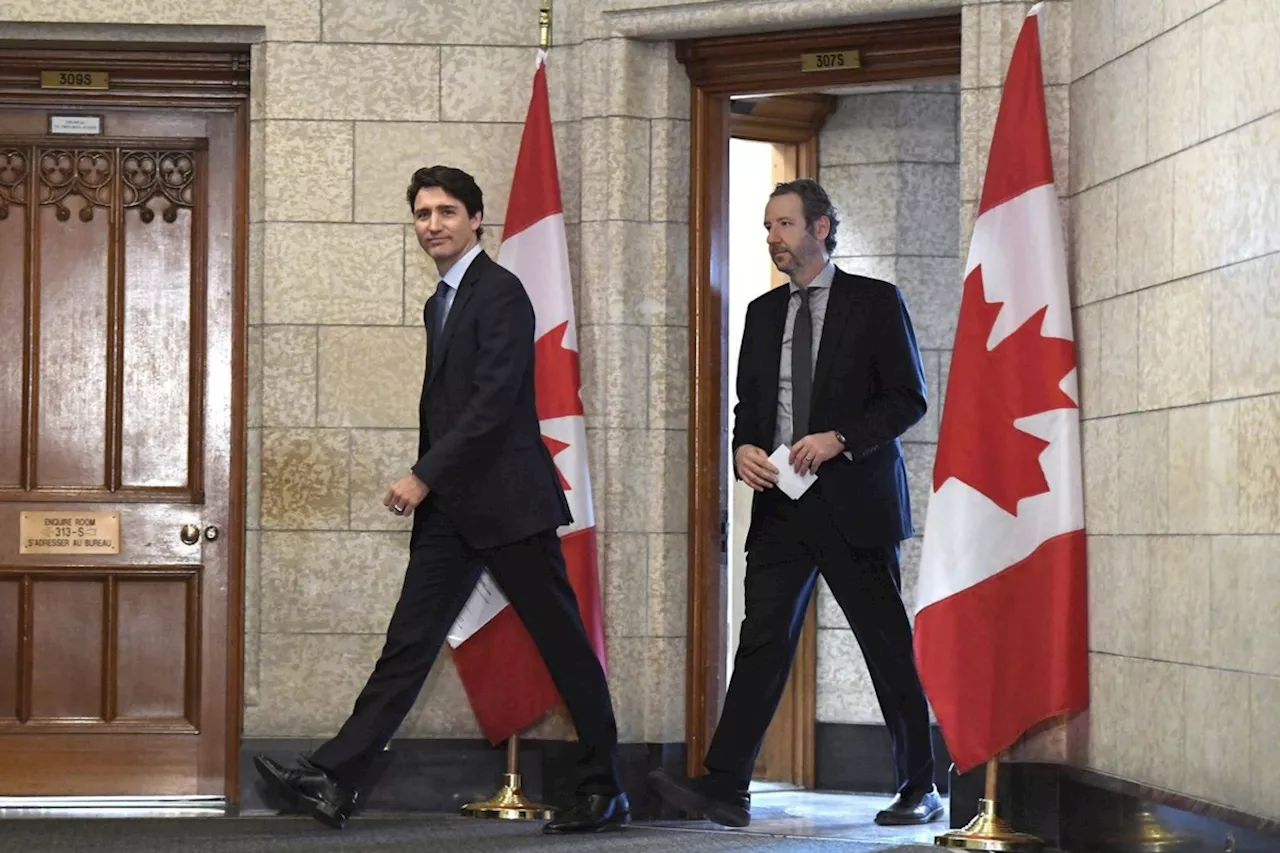 Gerry Butts says Trudeau less likely to remain leader since Freeland quitOTTAWA — A former chief adviser and close friend to Prime Minister Justin Trudeau says he doesn't think Trudeau will stay on to lead the Liberals in the next election.
Gerry Butts says Trudeau less likely to remain leader since Freeland quitOTTAWA — A former chief adviser and close friend to Prime Minister Justin Trudeau says he doesn't think Trudeau will stay on to lead the Liberals in the next election.
Read more »
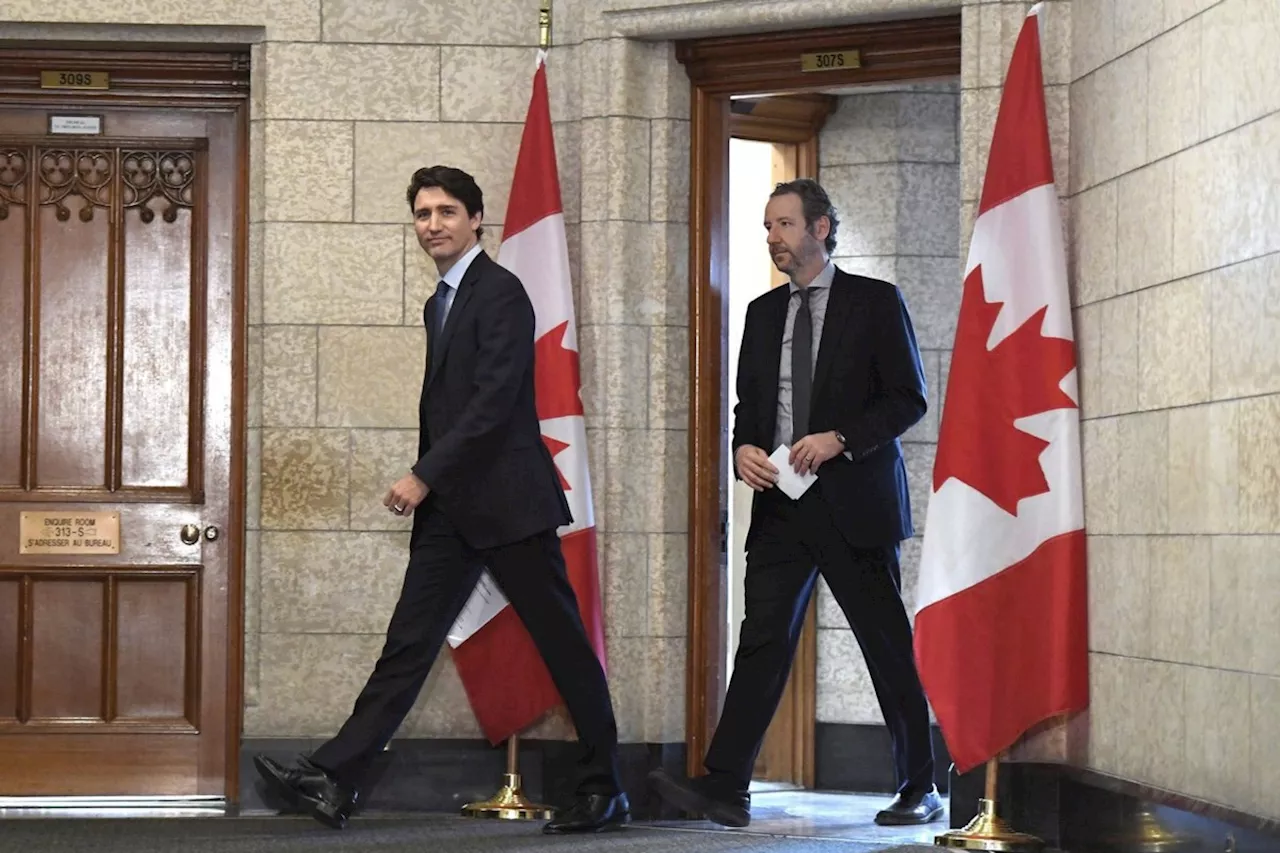 Gerry Butts says Trudeau less likely to remain leader since Freeland quitOTTAWA — A former chief adviser and close friend to Prime Minister Justin Trudeau says he doesn't think Trudeau will stay on to lead the Liberals in the next election.
Gerry Butts says Trudeau less likely to remain leader since Freeland quitOTTAWA — A former chief adviser and close friend to Prime Minister Justin Trudeau says he doesn't think Trudeau will stay on to lead the Liberals in the next election.
Read more »
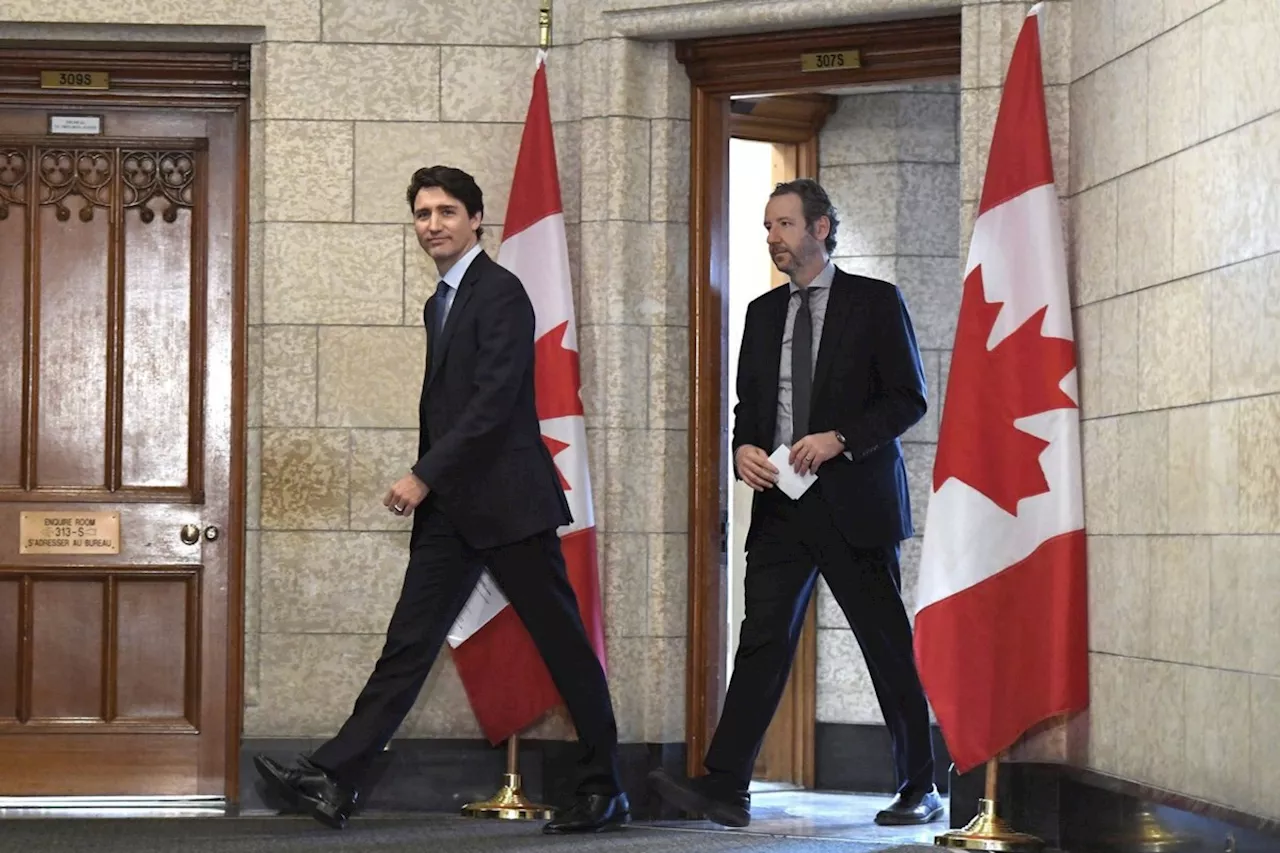 Gerry Butts says Trudeau less likely to remain leader since Freeland quitPrime Minister Justin Trudeau is said to be thinking about his future during the holiday break, as an increasing number of current and former Liberal MPs publicly call on him to step down for the good of the party.
Gerry Butts says Trudeau less likely to remain leader since Freeland quitPrime Minister Justin Trudeau is said to be thinking about his future during the holiday break, as an increasing number of current and former Liberal MPs publicly call on him to step down for the good of the party.
Read more »
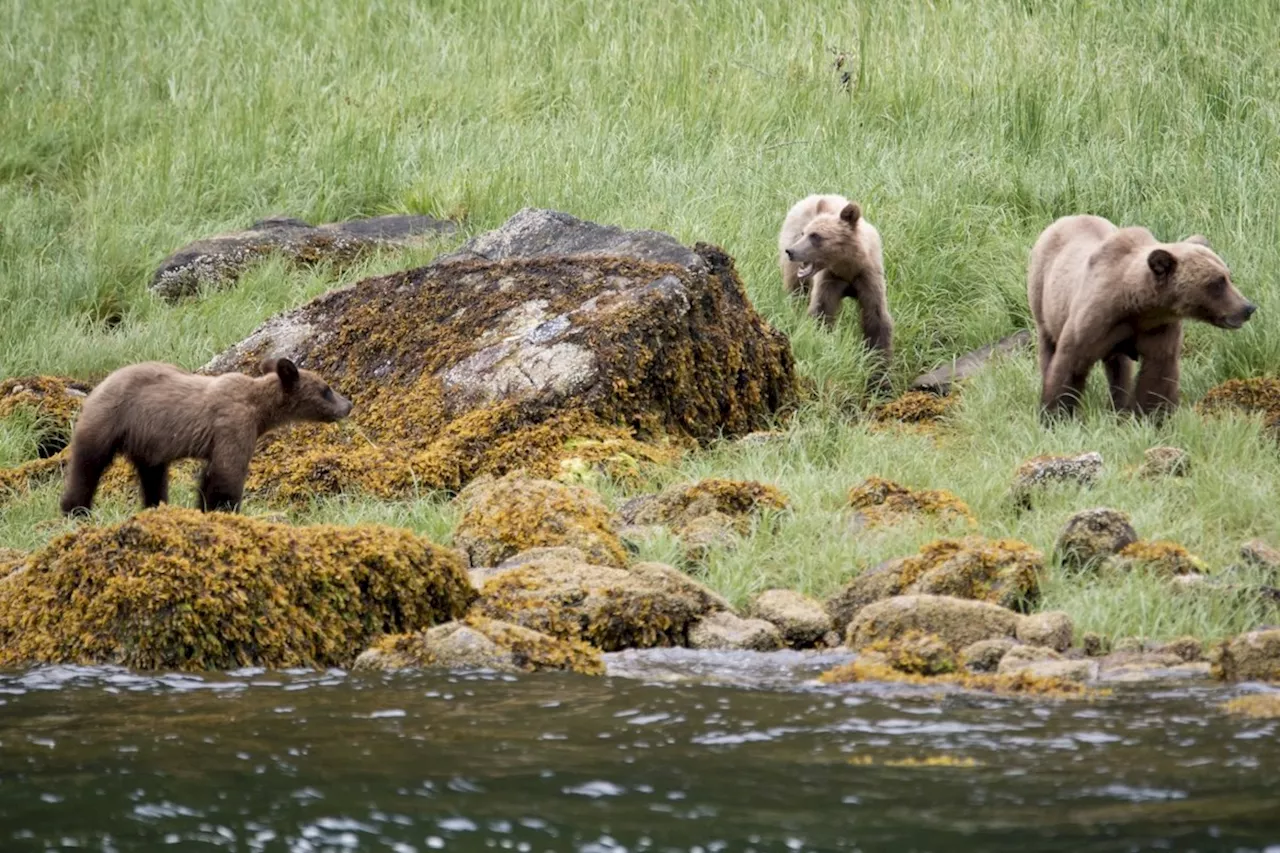 Ecotour grizzlies less likely to encounter conflict with humans, B.C. study suggestsGrizzly bears that visited ecotourism areas along a river on the province's central coast were less likely than others to encounter conflict with people in communities downstream, a new study by British Columbia-based researchers has found.
Ecotour grizzlies less likely to encounter conflict with humans, B.C. study suggestsGrizzly bears that visited ecotourism areas along a river on the province's central coast were less likely than others to encounter conflict with people in communities downstream, a new study by British Columbia-based researchers has found.
Read more »
 Ecotourism Resort in British Columbia Destroyed by FireA massive fire ripped through the Telegraph Cove Resort on Vancouver Island, consuming the waterfront boardwalk and reducing several centerpieces to rubble. The resort, founded in 1979, housed a whale interpretive center, a museum, and several businesses, all of which were lost in the blaze. While no one was injured, the owner expressed devastation over the loss of his life's work. Fire crews are investigating the cause of the fire.
Ecotourism Resort in British Columbia Destroyed by FireA massive fire ripped through the Telegraph Cove Resort on Vancouver Island, consuming the waterfront boardwalk and reducing several centerpieces to rubble. The resort, founded in 1979, housed a whale interpretive center, a museum, and several businesses, all of which were lost in the blaze. While no one was injured, the owner expressed devastation over the loss of his life's work. Fire crews are investigating the cause of the fire.
Read more »
![Why Solana’s [SOL] next move could surprise you](https://i.headtopics.com/images/2024/12/16/cryptoamb/why-solana-s-sol-next-move-could-surprise-you-why-solana-s-sol-next-move-could-surprise-you-F90A97FBF7880B5F717590A7ADA3C3F8.webp?w=640) Why Solana’s [SOL] next move could surprise youSolana is caught in a three-week volatility as bulls and bears fight for dominance. Will bears break long-term holders' conviction in SOL?
Why Solana’s [SOL] next move could surprise youSolana is caught in a three-week volatility as bulls and bears fight for dominance. Will bears break long-term holders' conviction in SOL?
Read more »
